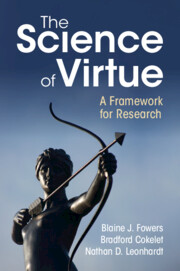
- Cited by 2
-
Cited byCrossref Citations
This Book has been cited by the following publications. This list is generated based on data provided by Crossref.
Jayawickreme, Eranda 2024. Which virtues work together to foster the xenocentric style?. Possibility Studies & Society,
López González, Jorge 2024. Dynamism of human action as a key to understanding virtue education. International Studies in Catholic Education, p. 1.
- Publisher:
- Cambridge University Press
- Online publication date:
- January 2024
- Print publication year:
- 2024
- Online ISBN:
- 9781108779968




